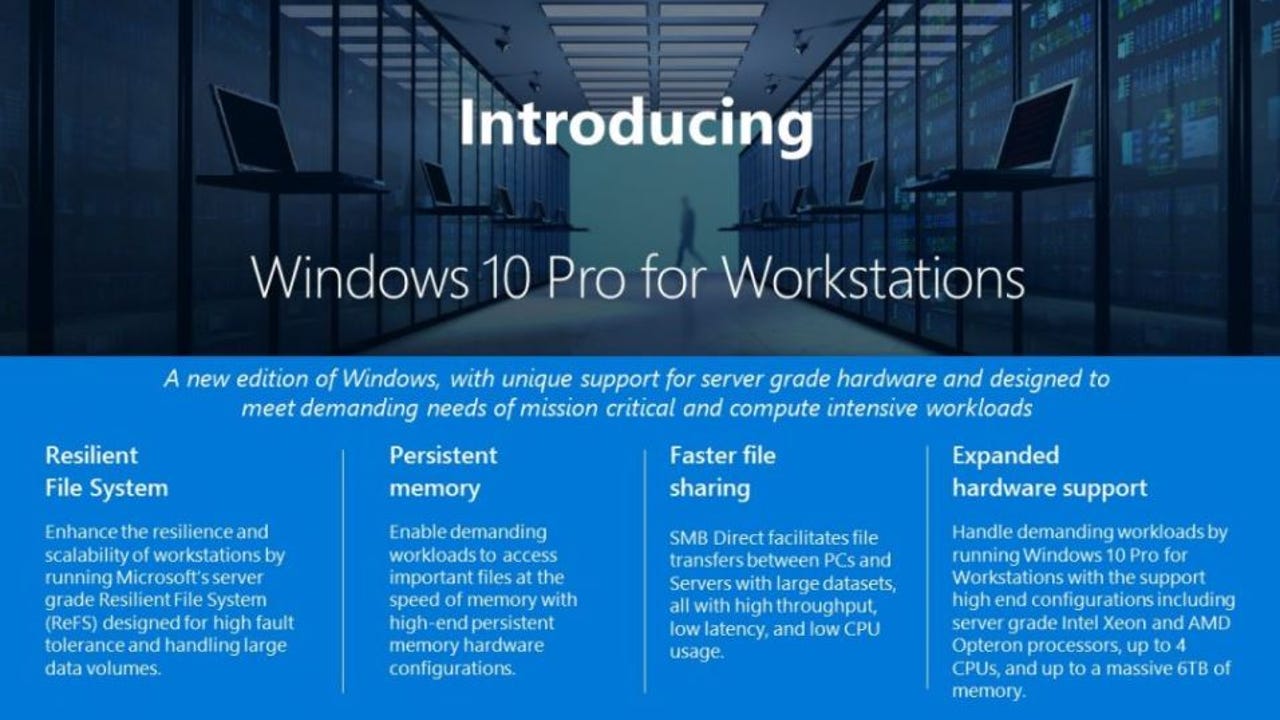Microsoft confirms new Windows 10 Pro for Workstations edition

The rumors and speculation were on the money: Microsoft is making Windows 10 Pro for Workstations, yet another new edition in its lineup, available starting this Fall.

"We know that power users have unique needs to run efficiently and we take the feedback we hear seriously," said Microsoft's Partner Group Program Manager for Windows and Devices, Klaus Diaconu, in a blog post on August 10.
Windows 10 Pro for Workstations will have "unique support for server grade hardware," according to Microsoft, "and (is) designed to meet demanding needs of mission critical and compute intensive workloads."
This new edition, which will be available when the Windows 10 Fall Creators Update (1703) is out this September or so, will include the ReFS file system; persistent memory; faster file sharing using SMB Direct; and support for new hardware configurations, including server-grade Intel Xeon or AMD Opteron processors with up to four CPUs and "massive" memory, up to 6 terabytes. Today, Windows 10 is limited to two CPU and 2 TB configurations.
The slide from Microsoft (embedded in this post above), citing the existence of the new Workstation edition, leaked in June, as noted by The Verge.
Microsoft's original Windows 10 line-up included three embedded/Internet of Things (IoT) versions, plus six other Windows 10 editions: Home, Mobile, Pro, Enterprise, Education, and Mobile Enterprise. Microsoft subsequently added Windows 10 S, which officials describe as a "mode" of Windows 10 Pro, to this list. There are also two subscription versions of Windows 10 now, Windows 10 Enterprise E3 and E5. Yes, it's complicated -- overly so, I'd say.
Bonus: For a blast from the past, check out this guest post from ZDNet blogger Jason Perlow about why he wanted Microsoft to turn Windows 2008 Server into Windows 2008 Workstation. Looks like he finally got his wish for a workstation SKU.
Previous and Related Coverage: